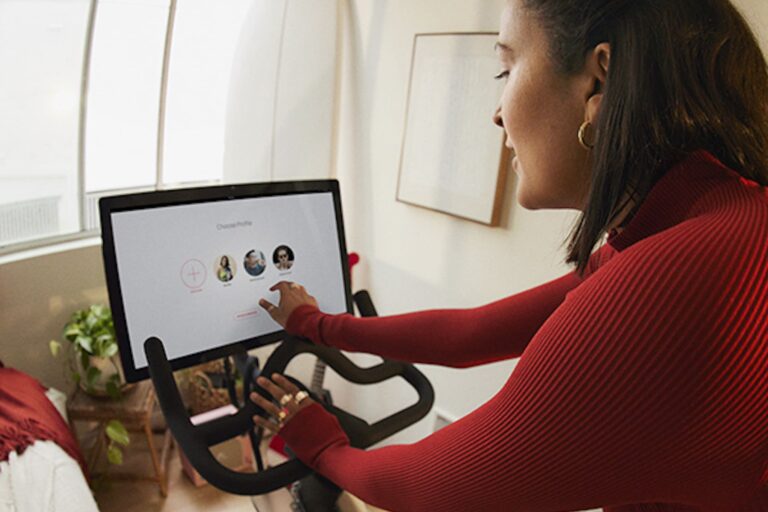How Does Peloton Calculate Calories?: Unlocking the Mystery
Peloton calculates calories primarily based on heart rate, using a formula that factors in average output, cadence, resistance, and overall speed.
The Science Behind Peloton’S Calorie Calculation
The Science Behind Peloton’s Calorie Calculation
Peloton’s Use of Mechanical Energy Measurement
Peloton utilizes the concept of mechanical energy to accurately calculate calories burned during a workout. Mechanical energy refers to the energy produced by the physical movement of your body during exercise. Peloton’s bike is designed to measure this mechanical energy output, taking into account factors such as resistance, cadence, and overall speed of your workout. By accurately tracking these metrics, Peloton can provide you with precise information about the calories you’ve burned.
Understanding Metabolic Energy and Its Conversion into Mechanical Energy
Metabolic energy is the energy generated by your body’s physiological processes, including digestion and respiration. This energy is converted into mechanical energy, which is used to power your muscles and drive your physical movements during exercise. Peloton’s calorie calculation algorithm takes into account this conversion process, ensuring that the calories burned estimation is based on a combination of metabolic and mechanical energy.
Factors Affecting Peloton’S Calorie Calculation
When it comes to calculating calories burned during a Peloton workout, there are several factors at play. Peloton utilizes a combination of heart rate, output, resistance, and cadence to determine the calorie count. By understanding these factors, you can have a better understanding of how Peloton calculates your calorie burn and make the most out of your workout.
The role of heart rate in Peloton’s calorie calculation
One of the primary factors that Peloton takes into account when calculating calories is your heart rate. Your heart rate is a valuable indicator of the intensity of your workout and plays a significant role in determining the amount of energy expended. Peloton uses your heart rate to estimate the number of calories burned during each session. The higher the heart rate, the more calories you are likely to burn.
How output affects calorie count
Output refers to the amount of mechanical energy you generate during a Peloton workout. It is measured in kilojoules (kJ) and is a combination of your resistance and cadence. The higher the output, the more calories you are likely to burn. Peloton calculates your average output throughout the workout and uses it as a key determinant in estimating your calorie burn.
Influence of resistance and cadence on calorie burn
Resistance and cadence are two critical variables that directly impact the number of calories burned during a Peloton workout. Resistance refers to the amount of force you need to overcome while pedaling, while cadence reflects the speed at which you pedal. A higher resistance combined with a higher cadence generally leads to a higher calorie burn, as it requires more energy to maintain the desired intensity. Peloton takes into account the resistance levels and cadence data recorded during your workout to calculate the calories burned.
Accuracy And Reliability Of Peloton’S Calorie Calculation
Addressing Concerns of Accuracy in Peloton’s Calorie Count
When it comes to fitness tracking, accuracy and reliability are of utmost importance. Peloton, known for its cutting-edge exercise equipment, has gained popularity in recent years. However, many users have raised concerns about the accuracy of Peloton’s calorie calculation. Let’s delve into these concerns and understand how Peloton calculates calories and whether it can be relied upon.
Comparing Peloton Calorie Burn with Other Fitness Tracking Devices
It’s natural to wonder how Peloton’s calorie burn compares to other fitness tracking devices. To get a clearer picture, let’s analyze the data. According to several studies and user experiences, Peloton tends to be more conservative in estimating calorie burn compared to other devices. For instance, while a Fitbit might show a higher calorie burn, Peloton might provide a slightly lower count for the same workout. It’s important to remember that calorie burn can vary based on individual factors and algorithms used by different devices. Therefore, instead of solely relying on the numbers, it’s advisable to focus on consistency and personal progress.
Tips for Maximizing Accuracy in Peloton’s Calorie Calculation
While Peloton strives to provide accurate calorie calculations, there are certain steps you can take to ensure maximum precision. Here are some tips:
- Wear a Heart Rate Monitor: Since Peloton utilizes heart rate data for its calorie calculation, wearing a reliable heart rate monitor can enhance accuracy. This ensures that the system receives accurate data to make precise calculations.
- Proper Bike Setup: Ensuring that your Peloton bike is set up correctly is crucial. A proper bike setup allows for optimal engagement of muscles, leading to more accurate calorie burn readings.
- Stay Consistent: To track your progress effectively, it’s essential to stay consistent with your workouts. Maintaining a regular exercise routine and using the same settings each time can provide more reliable data for calorie calculations.
- Combine with Additional Tracking: If you want a more comprehensive view of your fitness journey, consider using other tracking devices alongside Peloton. This can give you a broader perspective and help you make more informed decisions.
By following these tips, you can maximize the accuracy of Peloton’s calorie calculation and gain a better understanding of your fitness goals.

Credit: www.pcmag.com
Frequently Asked Questions Of How Does Peloton Calculate Calories?
Is Peloton Calories Burned Accurate?
Peloton calories burned may not be accurate as they use generic stats and are not based on the actual number of calories burned. It is recommended to use a heart rate monitor for more accurate results. Several factors can affect the accuracy, such as technical issues, overestimation on other apps, underestimation of effort, and failure to account for rest periods.
Does Peloton Calculate Calories Based On Heart Rate?
Yes, Peloton calculates calories based on heart rate along with other factors like power output, average cadence, resistance, and overall speed. It uses a formula to estimate the calories burned during a workout.
Why Are My Calories So Low On Peloton?
Calories on Peloton can be low due to various factors like technical issues, overestimation on other apps, underestimation of effort, and not accounting for rest periods. Peloton calculates calories based on output and heart rate.
How Many Calories Can You Burn On A Peloton?
A Peloton bike calculates calories burned based on heart rate, average output in kilojoules, cadence, resistance, and overall speed. The calorie count may be affected by technical issues, overestimation on other apps, underestimation of effort, and failure to account for rest periods.
Conclusion
Peloton calculates calories using a formula that takes into account factors such as heart rate, average output in kilojoules, cadence, resistance, and overall speed. However, it is important to note that the calorie count may not always be completely accurate due to various technical issues or overestimation.
It is recommended to use a heart rate monitor for more accurate results. Remember that the calorie count is just one aspect of your workout and should be considered alongside other factors for a holistic understanding of your fitness journey.







